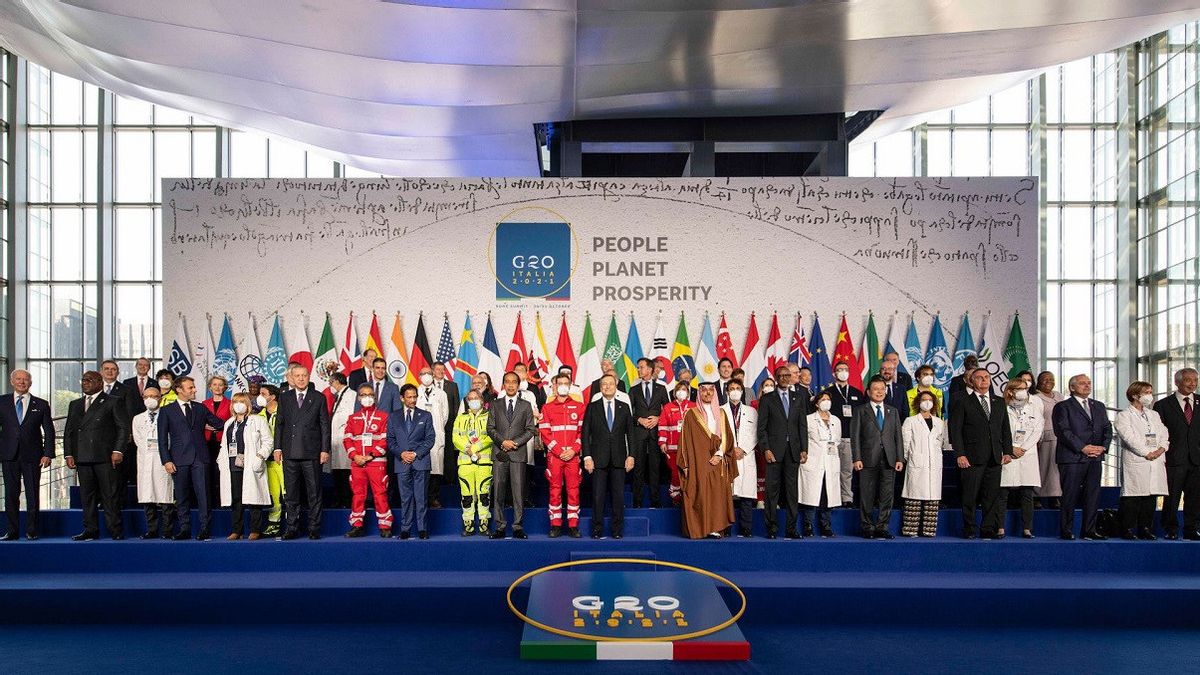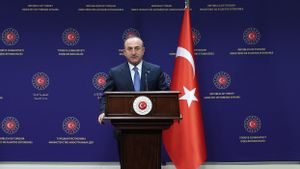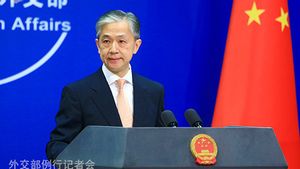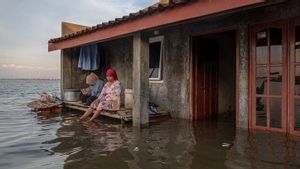JAKARTA - Leaders of the G20 Group of countries agreed on a final statement on Sunday, urging "meaningful and effective" action to limit global warming, but angered climate activists by offering few concrete commitments.
The outcome of days of tough negotiations between diplomats leaves huge work to be done at the broader UN COP26 Climate Summit in Scotland, which kicks off this week.
US President Joe Biden said he was disappointed that more could not be done and blamed China and Russia for not bringing the proposal to the table.
"Disappointment regarding the fact that Russia and China are basically not showing up in terms of any commitment to tackling climate change," President Biden told reporters, citing Reuters on November 1.
Although the G20 pledged to stop financing coal-fired power plants overseas, they did not set a timetable to phase it out at home, and softened word of promise to reduce emissions of methane, another potential greenhouse gas.
However, Italian Prime Minister Mario Draghi, who chaired the meeting in Rome, hailed the final agreement, saying for the first time all the G20 countries had agreed on the importance of limiting global warming to a level of 1.5 degrees Celsius which scientists say is very important to avoid disaster.
"We make sure our dreams don't just live, but they thrive," Draghi said at the closing news conference, brushing off criticism from environmentalists that the G20 had not gone far enough to resolve the crisis.
To note, the G20 which includes Brazil, China, India, Germany, and the United States, accounts for 60 percent of the world's population and about 80 percent of global greenhouse gas emissions.

The 1.5 degrees Celsius threshold is what UN experts say must be met to avoid a dramatic acceleration of extreme climate events such as droughts, storms, and floods, and to achieve it they recommend net zero emissions should be achieved by 2050.
The stakes are enormous, among them the survival of low-lying countries, their impact on economic livelihoods around the world, and the stability of the global financial system.
"This is a moment for the G20 to act with the responsibilities they have as the biggest emitters, but we see only half-measures rather than concrete urgent action," said Friederike Roder, vice president of sustainable development advocacy group Global Citizen.
The final G20 summit document said current national plans on how to curb emissions should be strengthened 'if necessary', and made no specific reference to 2050 as the date for achieving net-zero carbon emissions.
"We recognize the impact of climate change at 1.5 degrees Celsius is much lower than at 2 degrees Celsius. Keeping 1.5 degrees Celsius within reach will require meaningful and effective action and commitment from all countries," the communique said.
The leaders recognized only the "major relevance" of net emission cessation "in or around the middle of the century". This removes the 2050 time seen in previous versions of the final statement making the target less specific.
China, the world's largest CO2 emitter, has set a time target of 2060, and other major polluters such as India and Russia have also not committed to a 2050 time target.
Meanwhile, German Chancellor Angela Merkel said the deal was a good signal for COP26, while Canadian Prime Minister Justin Trudeau signaled he wanted to see more ambition.
"There is no doubt that Canada, along with a number of other countries, would prefer a stronger language and a stronger commitment to fighting climate change than others," he told reporters.
Separately, UN experts say that even if current national plans are fully implemented, the world is heading for global warming of 2.7C, with disastrous consequences.
PM Draghi expects countries to continue to improve their plans to cut carbon emissions in the coming years, adding he is surprised by how far countries like China and Russia have changed their stance in recent days.
"It's very easy to suggest difficult things. It's very, very difficult to actually execute them," Draghi said.
The latest G20 statement included a pledge to stop financing coal-fired power plants abroad by the end of the year, but did not set a date for stopping coal-fired power generation, only promising to do so "as soon as possible".
This replaces the goal set out in the previous draft final statement to achieve this by the late 2030s, which demonstrates strong resistance from some coal-dependent countries.
The G20 also did not set a date to phase out fossil fuel subsidies, saying they would do so "over the medium term".
On methane, which has a stronger but less lasting impact than carbon dioxide on global warming, they took their word for an earlier draft that promised to "work to significantly reduce our collective methane emissions".
The final statement simply acknowledges that reducing methane emissions is "one of the fastest, most feasible and most cost-effective ways to limit climate change".
G20 sources said negotiations were tough on so-called climate finance, referring to a 2009 pledge by rich countries to provide $100 billion annually by 2020 to help developing countries tackle climate change.
SEE ALSO:
PM Draghi said the funding gap had narrowed to less than $20 billion and was expected to be closed further, with rich countries considering using financing from the International Monetary Fund to cover the shortfall.
To note, world leaders will kick off COP26 on Monday with a two-day speech that could include several new emission reduction pledges, before technical negotiators clash over the rules of the 2015 Paris climate accord.
The United Nations said last week greenhouse gas concentrations were hitting record levels in 2020 and the world was far from being on track in limiting temperature rise.
The English, Chinese, Japanese, Arabic, and French versions are automatically generated by the AI. So there may still be inaccuracies in translating, please always see Indonesian as our main language. (system supported by DigitalSiber.id)


















